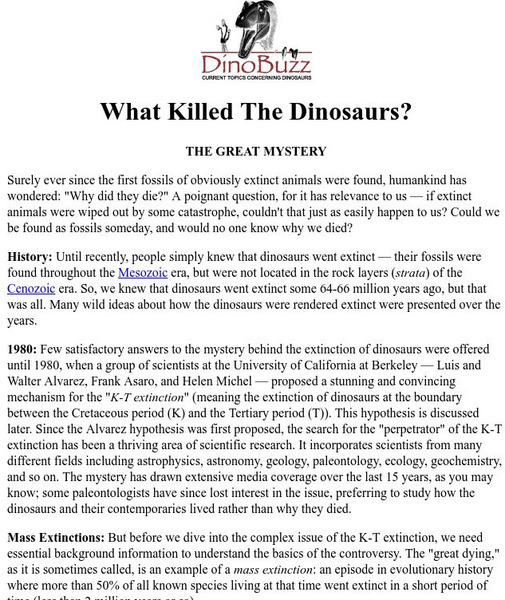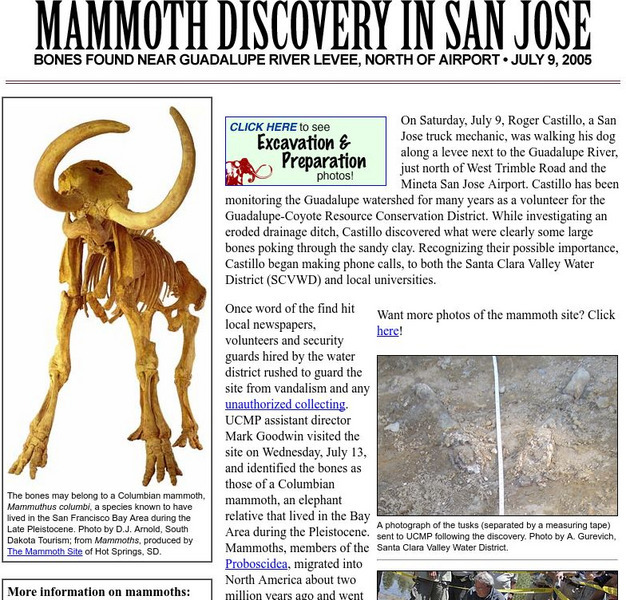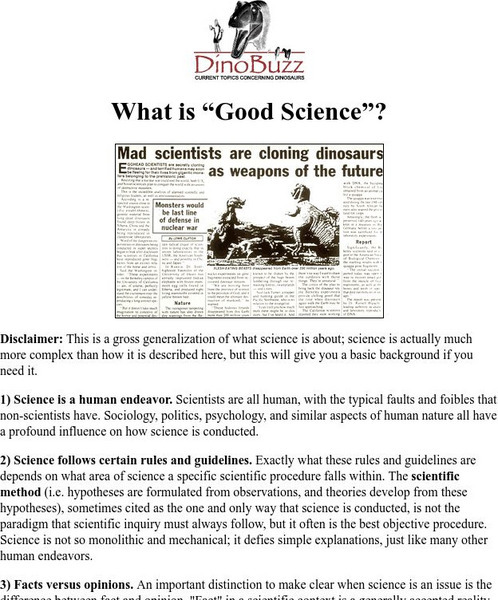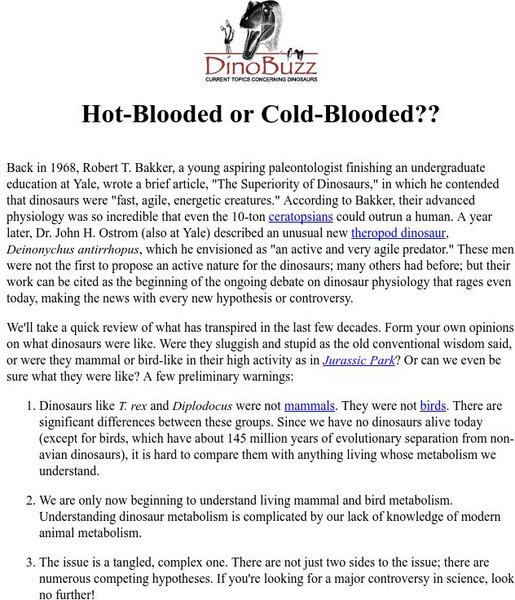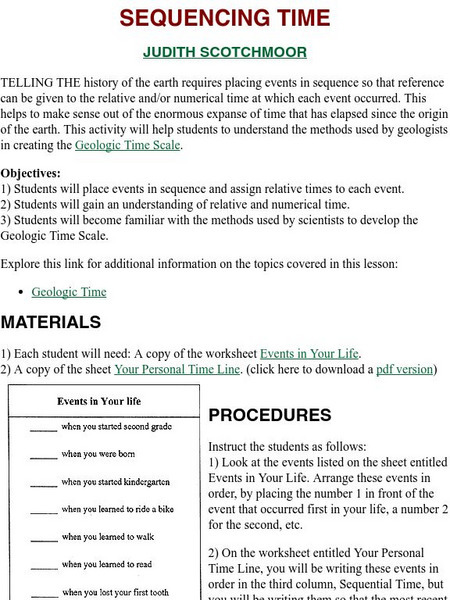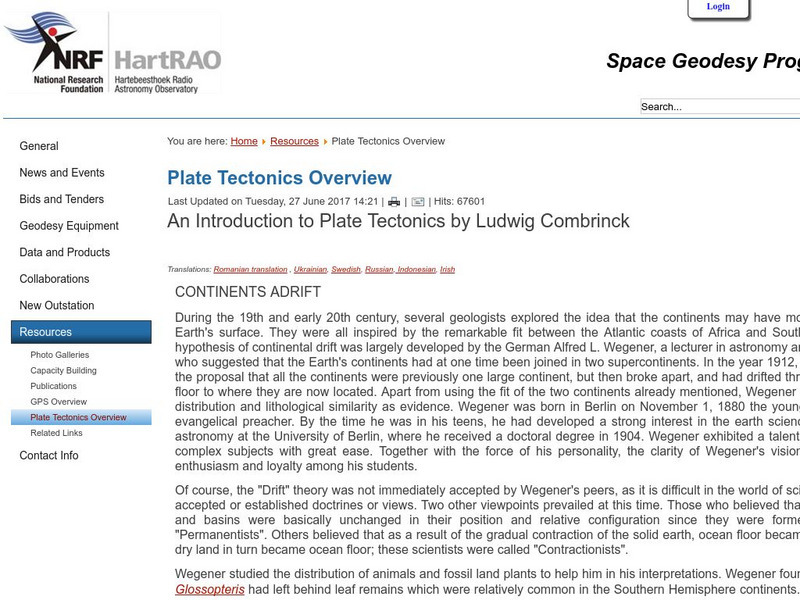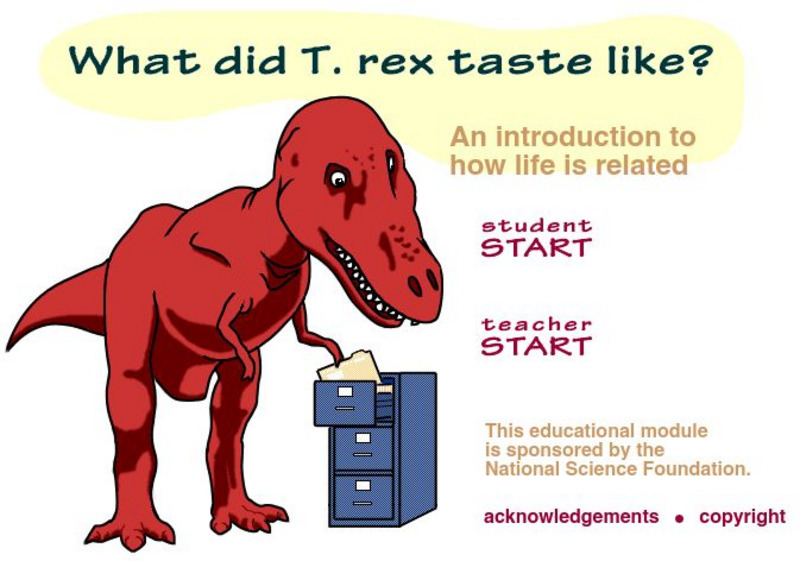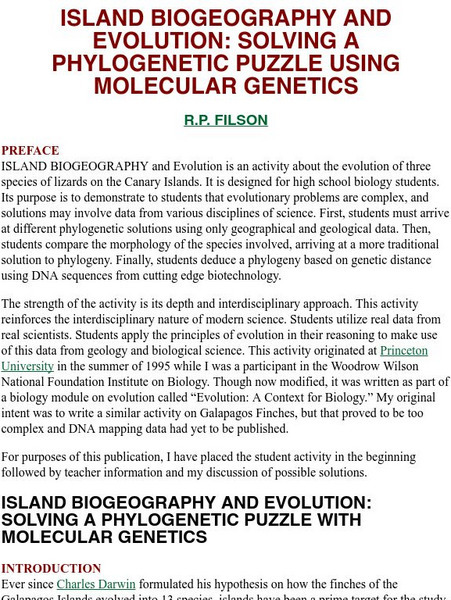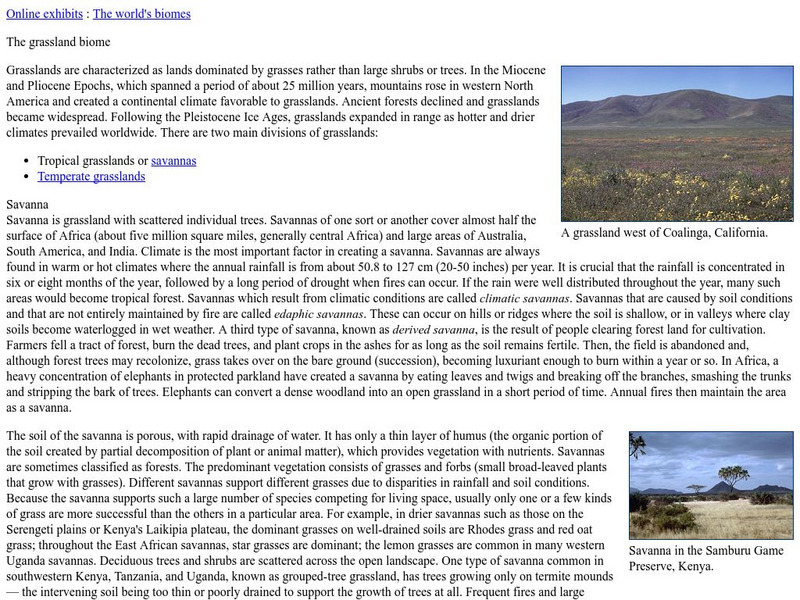University of California
Ucmp: What Killed the Dinosaurs?
This UC Berkeley site extensively covers the death of the dinosaurs. It includes history, theories, invalid hypotheses, and current arguments.
University of California
Ucmp: Introduction to the Fungi
A wonderful place to learn all about the fungi. click on the buttons at the bottom of the page to go to sections on their life history, systematics and morphology.
University of California
Ucmp: The Dinosauria
The Dinosauria provides the latest information about dinosaurs, including debunking myths, early dinosaur discoveries, characteristics of specific dinosaurs, life history, and discovery of dinosaur fossils.
University of California
Ucmp: Yesterday's Trees Today's Horsetails
Berkeley offers a brief introduction to these Sphenophyta. At the bottom of the page, you can go to sections such as fossil record, ecology/history and systematics.
University of California
Ucmp: Mammoth Discovery in San Jose
A mammoth was discovered in San Jose in 2005, leading to this well documented excavation of the site. There are detailed photos and captions of each step of the excavation, including the plastering and removal of the skeleton and its...
University of California
Ucmp: Evolution: Theory and Science
An introduction to Darwin's theory of evolution with hyperlinks to other topics on evolution, including a timeline of evolutionary thought.
University of California
Ucmp: The Evolution of Flight in Birds
Evidence from the fossil record is used to support bird evolution from small carnivorous dinosaurs. In the student module, feathers, behavior, and skeletal structure are examined in an interactive lesson designed to impart a complete...
University of California
Ucmp: What Is "Good Science"?
A very good explanation of the scientific process and the differences between science and non-science. This is a concise and clearly written description.
University of California
Ucmp: Hot Blooded or Cold Blooded?
An easy-to-understand explanation of what it means to either hot- or cold-blooded.
University of California
Ucmp: Plantae
At this resource learners can take a look at the plant kingdom with a detailed examination of fossil records, life history and ecology, systematics, and morphology.
University of California
Ucmp: Life Has a History
University of California site showcases how different types of organisms exist on the Earth and the history of life.
University of California
Ucmp: Sequencing Time
Lesson plan in which students place events in sequence, comparing their life to the history of the Earth.
University of California
Ucmp: Introduction to the Archaea
Berkley offers an introduction to archaebacteria--ancient bacteria--including the history of the topic, scientific findings, and where to find archaeans. Includes images and links.
University of California
Ucmp: The Cretaceous Period
This site from the UCMP Berkeley provides information about the Cretaceous Period, the last portion of the age of the dinosaurs and the continued break up of the continent of Pangaea.
University of Nebraska
Univ. Of Nebraska Museum: Preserving Vertebrate Fossils
This resource details the process by which vertebrate fossils should be excavated and preserved in order to conserve them for as long as possible. It also includes information about the role of amateur fossil collectors and museums.
University of California
Ucmp: The World's Biomes
This is an introduction to the major biomes on Earth. This page groups biomes into five major types: aquatic, deserts, forests, grasslands, and tundra. Information on climate, animal/plant life, and much more is given for each of type...
Other
Hartao: An Introduction to Plate Tectonics
Introduces South African Alexander Toit as naming Gondwanaland and Laurasia.
University of California
Ucmp: What Did T. Rex Taste Like?
The title could be slightly misleading for this site. It is actually a teaching and learning module on the science of cladistics. As they go through the module, students will increase their understanding of, and appreciation for, the...
University of California
Ucmp: Island Biogeography and Evolution
This is a lesson designed by a biology teacher. In it, students use maps and evidence of island age, molecular genetics, morphology, and distance apart to determine how the islands came to be occupied by different species of lizards. It...
University of California
Ucmp: Grassland Biome
Learn all about the grassland biome including where located in the world, climate, flora and fauna, and soil. Good research site for middle years students.
University of California
Ucmp: The Desert Biome
Learn about the four types of deserts: hot and dry, semiarid, coastal, and cold with this key facts and information. Includes links to other biomes: aquatic, forest, grasslands, and tundra.
University of California
Ucmp: Forest Biome
Learn all about the forest biome including where located in the world, different kinds, climate, flora and fauna, and soil. Good research site for middle years students.
American Museum of Natural History
American Museum of Natural History: O Logy: Face to Fossil: Protoceratops
Questions and answers about Protoceratops andrewsi, presented as an "interview" with a museum's fossil. Learn about the dinosaur, the age of the fossil, and how the museum had it transported.
University of Nebraska
Ashfall Fossil Beds State Historic Park
The Ashfall Fossil Beds are located in Nebraska. Much of the research done there is conducted by scientists from the University of Nebraska and the Nebraska State Museum. The history, geology and paleontology of the site are described....
Other popular searches
- Paleontology Dinosaurs
- Paleontology Fossils
- Paleontology Hominid
- Paleontology Math
- Fossil Paleontology
- What Is Paleontology
- Paleontology Seas
- Paleontology and Dinosaurs
- Paleontology Vocab
- Marsh Paleontology
- Paleontology Unit
- Social Studies Paleontology


